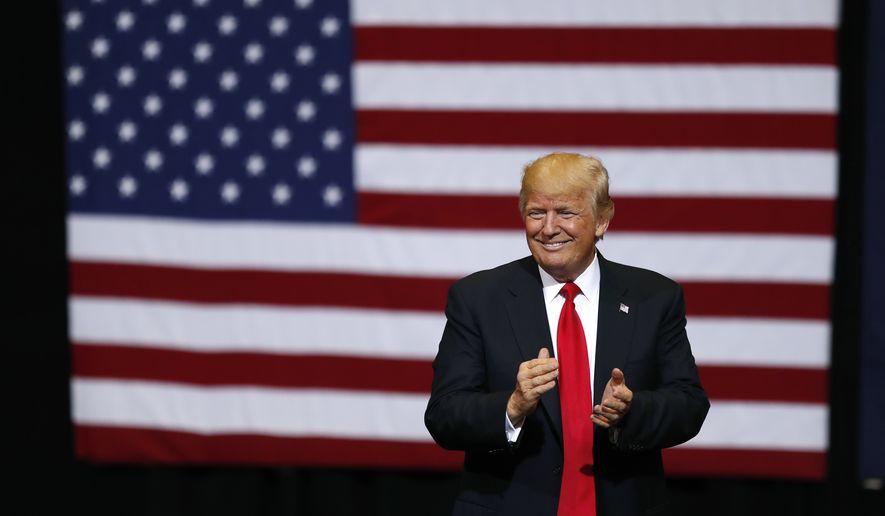The U.S. and South Korea have agreed to a new trade deal that promises to boost America auto exports and limit imports of Korean steel, senior Trump administration officials said Tuesday.
The agreement was struck following months of negotiations, but President Trump’s new tariffs on steel and aluminum gave the U.S. added leverage in the final bargaining sessions.
“This is both a good deal for both countries and a very big deal in the history of U.S. trade negotiations,” said a senior administration official who briefed reporters on the deal. “This agreement is visionary and innovative, and underscores a pattern of failure by previous administrations to negotiate fair and reciprocal trade deals that benefit both countries.”
The U.S.-Korea Free Trade Agreement or KORUS has long vexed U.S. auto and auto parts industry because of caps on American cars sold in Korea and other barriers to entering the market.
Mr. Trump, who made fixing bad trade deals a cornerstone of his 2016 presidential campaign, has blasted the existing trade deal with South Korea as “horrible.”
The makeover of KORUS is the first major renegotiation of a trade deal in U.S. history. The official said it is also a template for how Mr. Trump will broker better deals for American business and workers.
“It’s pretty clear that the world and our trading partners are responding to this president differently,” said the official, adding that they know Mr. Trump “is serious.”
Many of the fixes are aimed at gaining access for U.S. automakers, which accounts for a huge share of America’s $33 billion annual trade deficit with South Korea.
Since KORUS took effect, Korean passenger car sales in the U.S. jumped from $8.1 billion in 2011 to $16 billion in 2016. The U.S. shipped just $1.5 billion worth of passenger cars to South Korea in 2016.
The agreement also address Korean steel sold in the U.S. and other hot-button trade issues.
Under the new deal, South Korea, a top steel supplier to the U.S., will be exempted from the 25 percent tariff in exchange for quotas imposed on their steel imports. The quota is set at 70 percent of the average of steel sales to the U.S. during the 2015-2017 period.
Similar deals for other countries seeking to escape the tariff are expected.
The agreement also put restrictions on current manipulation by South Korea, the first time such measures were included in a trade deal.
For U.S. automakers, South Korea agreed not to reimposing a tariff on cars that Seoul has previously lifted. They also increased the number of U.S. cars allowed in without meeting South Korea’s different safety standards from 25,000 to 50,000.
South Korea previously subjected U.S. cars to additional testing and environmental standards, but now will align those tests with U.S. standards.
Seoul also agreed to recognize U.S. standards for auto parts and reduce some labeling requirements that burdened U.S. manufacturers.
• S.A. Miller can be reached at smiller@washingtontimes.com.




Please read our comment policy before commenting.